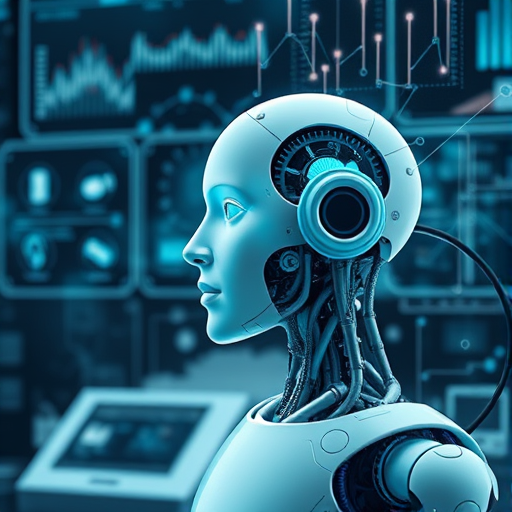Artificial Intelligence (AI) is increasingly transforming the workforce, with automation becoming a central part of many industries. AI-driven technologies are changing how businesses operate, how tasks are performed, and, in some cases, eliminating the need for human intervention in certain jobs. As a result, there’s a lot of uncertainty and curiosity about the future of work and what to expect as AI continues to evolve. Here’s a look at the impact of AI on job automation and the key trends we can expect moving forward:
1. Job Displacement and Job Creation
AI automation is expected to replace certain repetitive or low-skill jobs, particularly those that involve manual, routine tasks. These might include roles in manufacturing, data entry, customer service (through chatbots), and even some driving jobs (with self-driving vehicles). For example, automated systems can handle tasks such as processing transactions, managing inventory, or conducting basic customer support interactions.
- What to expect: While AI will displace some jobs, it will also create new ones. As industries evolve, new types of roles will emerge, such as AI specialists, data scientists, and machine learning engineers. Moreover, workers may need to adapt to more complex and higher-level tasks that require creativity, strategic thinking, and emotional intelligence—skills that AI cannot replicate easily.
2. Changes in Skill Requirements
AI is driving demand for new skills in the workforce. Jobs that remain in demand will require employees to have technical skills, such as proficiency with AI, machine learning, and data analysis. Roles that involve problem-solving, creativity, and interpersonal skills will also remain essential as these cannot be fully automated by AI.
- What to expect: The workforce will likely need to engage in lifelong learning and upskilling to keep up with new technologies. This could lead to a surge in demand for training programs, certifications, and courses related to AI and other emerging technologies.
3. Increased Productivity and Efficiency
AI can automate mundane tasks, allowing employees to focus on more strategic or creative aspects of their work. Automation can increase efficiency and productivity by streamlining workflows, reducing errors, and speeding up processes. For example, AI-powered software can help companies analyze data, predict trends, and make decisions faster than humans can.
- What to expect: Increased productivity could lead to significant cost savings for businesses, which may reinvest these savings into innovation, research and development, or enhancing employee benefits. As AI takes over more routine tasks, human workers can engage in higher-level decision-making, which might contribute to overall business growth.
4. Enhanced Customer Service
AI has already made a huge impact in customer service, with chatbots, virtual assistants, and AI-driven support systems handling many customer queries. These systems can operate 24/7 and provide instant responses, making customer support more efficient and accessible.
- What to expect: While AI may reduce the need for human customer service representatives, it will enhance the overall customer experience by providing faster, more accurate responses. Humans may still be needed for complex issues that require empathy, nuanced understanding, or creative problem-solving.
5. AI in Decision-Making and Strategy
AI’s ability to process vast amounts of data and recognize patterns makes it valuable in decision-making. Businesses can use AI to identify market trends, optimize pricing strategies, improve supply chain management, and predict consumer behavior. AI can help companies make data-driven decisions that were previously time-consuming or impractical.
- What to expect: AI will likely become a valuable tool for executives and managers, assisting them in making informed, data-backed decisions that increase profitability and efficiency. While AI can assist with decision-making, it’s expected that human judgment will still be crucial, particularly when it comes to ethical considerations and long-term strategy.
6. Ethical and Social Implications
The rise of AI-driven job automation raises significant ethical and social questions, such as: How do we ensure that displaced workers have opportunities to retrain? How do we address the potential for AI biases that could perpetuate inequality in hiring or decision-making? And, how can we balance the economic benefits of AI with the potential harm it might cause to certain industries or populations?
- What to expect: Governments, organizations, and educational institutions will need to address the ethical and social implications of AI automation. Policies and programs that help workers transition into new roles, such as retraining and reskilling programs, will become crucial. Additionally, the development of regulations around AI use, transparency, and accountability will play an important role in mitigating potential risks.
7. Collaboration Between Humans and AI
Rather than replacing humans entirely, AI is more likely to augment human capabilities in the workplace. Many tasks will become collaborative, with AI handling repetitive or analytical functions, while humans focus on tasks requiring creativity, critical thinking, or emotional intelligence. This can lead to a new kind of “human-AI partnership.”
- What to expect: Humans will increasingly work alongside AI tools to complete tasks faster and more effectively. For example, AI might help doctors analyze medical scans, but the final diagnosis and treatment plan would still involve human judgment. Similarly, AI could assist creative professionals with generating ideas or improving efficiency, but the final product would rely on human creativity.
8. Impact on Low-Skill and High-Skill Jobs
The impact of AI automation may differ across various skill levels. Low-skill jobs that involve repetitive tasks (e.g., assembly line work, call centers, retail) are more vulnerable to automation. However, high-skill jobs requiring specialized knowledge or decision-making (e.g., doctors, engineers, creative professionals) may be less susceptible, although they may see certain tasks automated, like data analysis or routine diagnostics.
- What to expect: AI may lead to a polarization of job opportunities. Workers with higher education and technical skills will benefit from the demand for new roles, while low-skill workers may experience greater job displacement. This disparity will require efforts to support workforce retraining and ensure equitable opportunities for all.
9. Impact on Employment Structures
As AI takes over more routine tasks, the structure of many organizations could shift. For example, companies might lean toward hiring fewer employees for administrative or repetitive tasks and invest more in specialized roles that require human judgment. The freelance economy may also expand as more workers take on flexible, remote roles where they can collaborate with AI tools.
- What to expect: Organizations will likely move toward more flexible and dynamic workforce models. Remote and freelance work could become more common, as employees can focus on tasks that require human creativity and strategic thinking while relying on AI to handle other responsibilities.
10. Global Workforce Transformation
AI has the potential to drastically alter the global workforce, especially in emerging markets. Automation can either increase economic inequality if certain regions are left behind or reduce labor costs in developing countries, leading to new growth opportunities. The international nature of AI development and adoption may also lead to shifts in where jobs are located.
- What to expect: There will be significant disparities in the way AI impacts different regions and industries. Global competition may rise as countries with advanced AI technologies drive economic growth, while regions slower to adopt AI may face challenges in staying competitive. Cross-border collaboration in AI development and regulation will become increasingly important.





